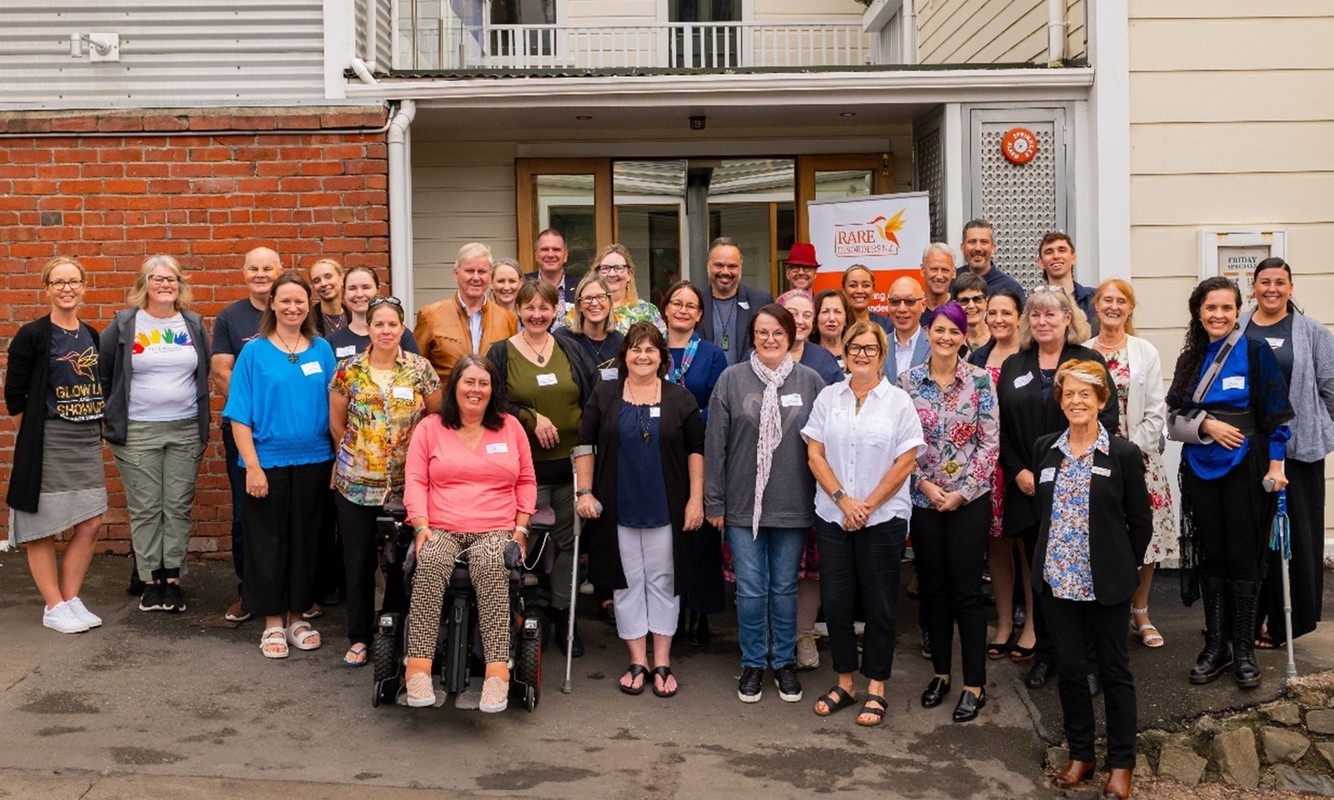Rare Disease Day 2024
Mon April 1st 2024
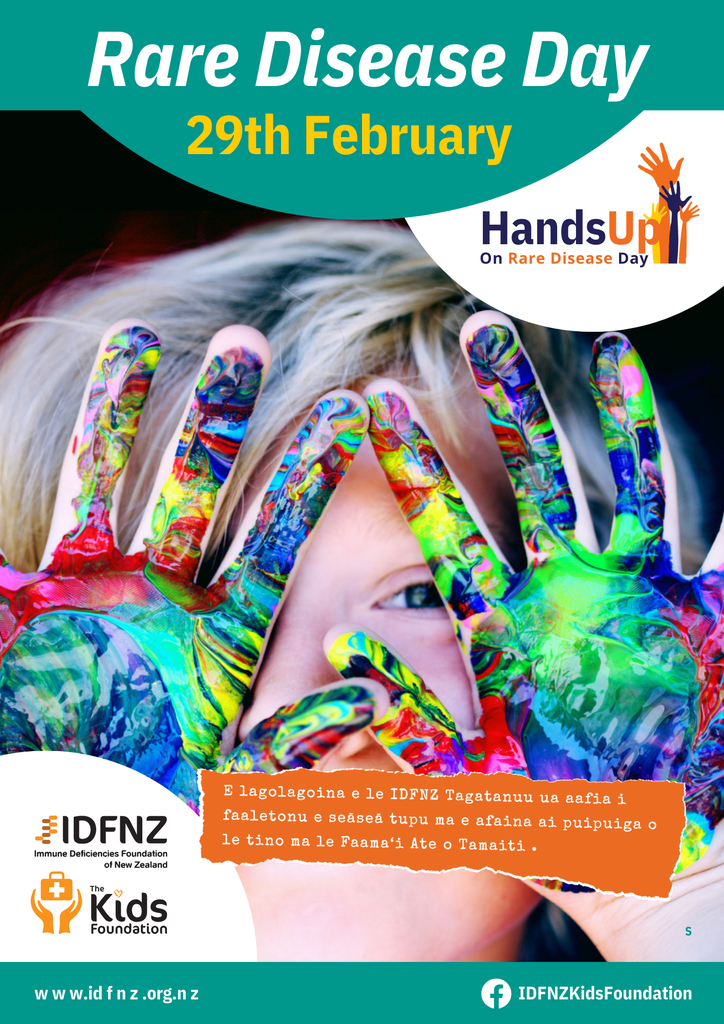
Rare Disease Day is a day of global solidarity, marked each year around the world on the last day of February (the rarest day of the year) to raise awareness and to advocate for equity for rare disorders
The Impact of living with a rare disorder in Aotearoa New Zealand in 2024
IDFNZ representatives attended an event at parliament to launch Rare Disease month 2024. Rare Disorders NZ hosted the event to release the latest Voice of Rare Disorders White Paper based on their biennial survey. It is currently the only comprehensive data source that outlines the impact that living with a rare disorder has on different areas of life in New Zealand. 59% of survey respondents reported that the disorder impacted a lot on their health and everyday life. Concerningly, one in three people often felt unhappy and depressed and that they could not overcome their problems. It is important to quantify this information and to communicate it to our politicians and health leadership. Great job RDNZ!
Unlike many other OECD countries, Aotearoa doesn’t yet have a rare disorders strategy. RDNZ is hopeful that the Ministry of Health will deliver the strategy soon with their four bottom lines included. These include a centre for expertise, improved medicine access pathways, coding of rare disorders and acknowledging Rare Disorders NZ as a key enabler of the strategy’s implementation.
Thank you to all IDFNZ members who participated in the RDNZ survey on the impact of living with a rare disease here in New Zealand. There were 1,076 responses, making it the largest-ever survey of consumer-reported outcomes for people with rare disorders in New Zealand. Anyone living with a rare disorder in New Zealand was strongly encouraged to take part, as well their whānau and carers.
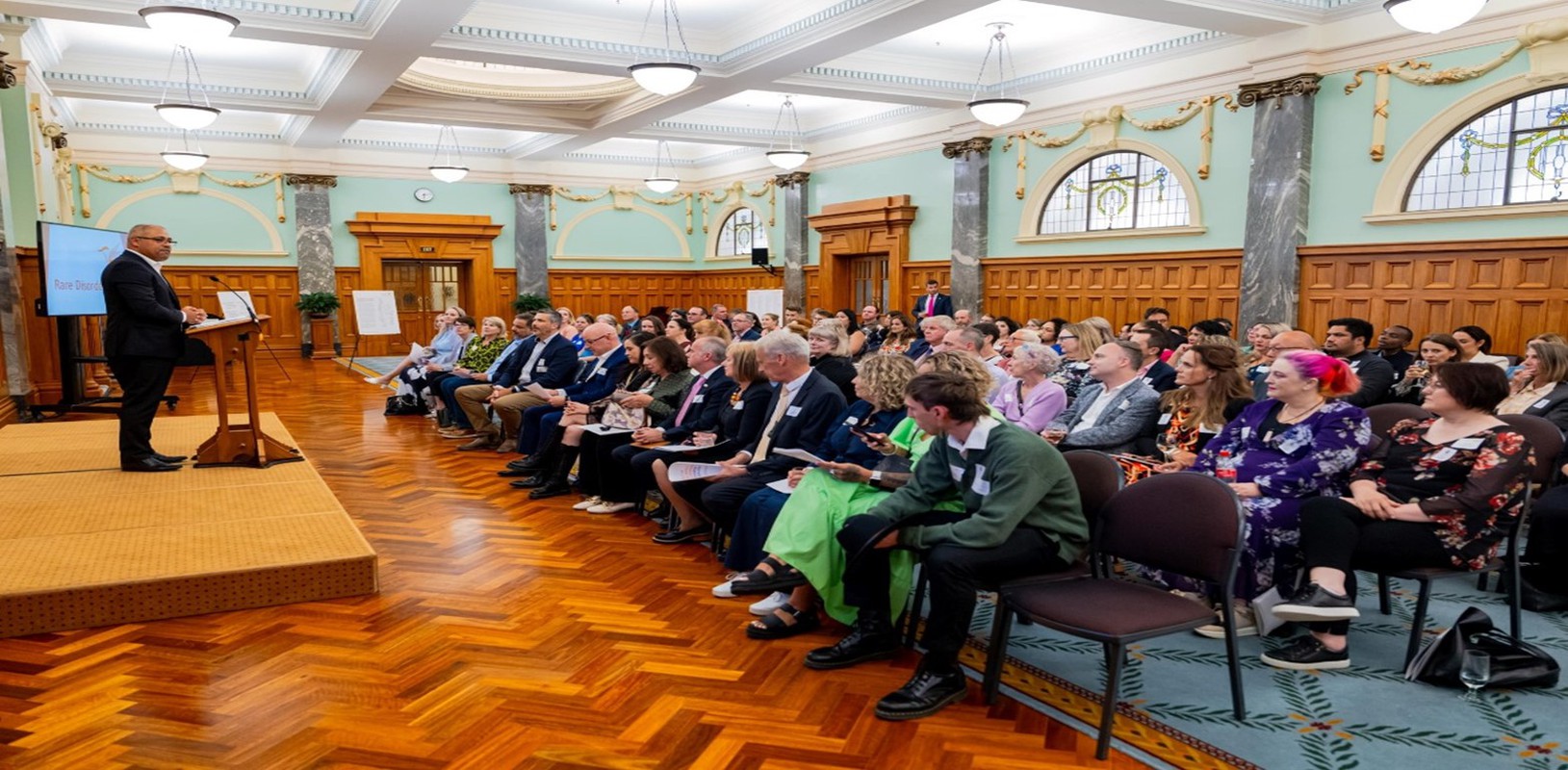

The results paint a picture similar to prior surveys by RDNZ, of isolation, lack of timely diagnosis, poor treatment access, lack of coordinated care, significant carer impact and for many, being lost in the system. More than ever, the results clarify the need for a comprehensive plan to deliver sustainable improvements in health outcomes for the rare disorder community.
Key findings from the 2023 survey:
- Over half took longer than one year to get a diagnosis and, for almost one in five, it took over 10 years.
- 59% of people reported that the disorder impacted a lot on their health and everyday life.
- High utilisation of healthcare services, with the majority having seen a specialist or GP in the 6 months prior to the survey.
- Many have been in hospital over the last 12 months. More than one in three (39%) were in hospital for an average of 12 days as an inpatient, and one in 13 were admitted to ICU for an average of 4.6 days.
- There were few accessible, effective modern medicines available for the majority of people, with most being used to relieve pain and inflammation.
- Around half of people felt that organising care was difficult to manage.
- Two in three people did not feel at all informed about social services, nor financial help available.
- Over half felt that communication and information exchange between different service providers was poor and that professionals are poorly prepared to support them.
- The rare disorder caused a decrease in income for 74% of people.
- 57% have experienced increased tension between family members, and 69% experienced isolation from family and friends, amplified by or caused by their rare disorder.
- One in three people often felt unhappy and depressed and felt they could not overcome their problems, with a further third sometimes having these feelings.
To read the full report, download the 2024 Impact of Living with a Rare Disorder in Aotearoa New Zealand www.raredisorders.org.nz/assets/Documents/5295_RDNZ_White-Paper-Layout_WEB.pdf.
The proportion of people surveyed that included Māori as an ethnic group was 13.3%, much closer to National Census estimates than previous 2019 and 2021 surveys. This reflects improved engagement with this group.
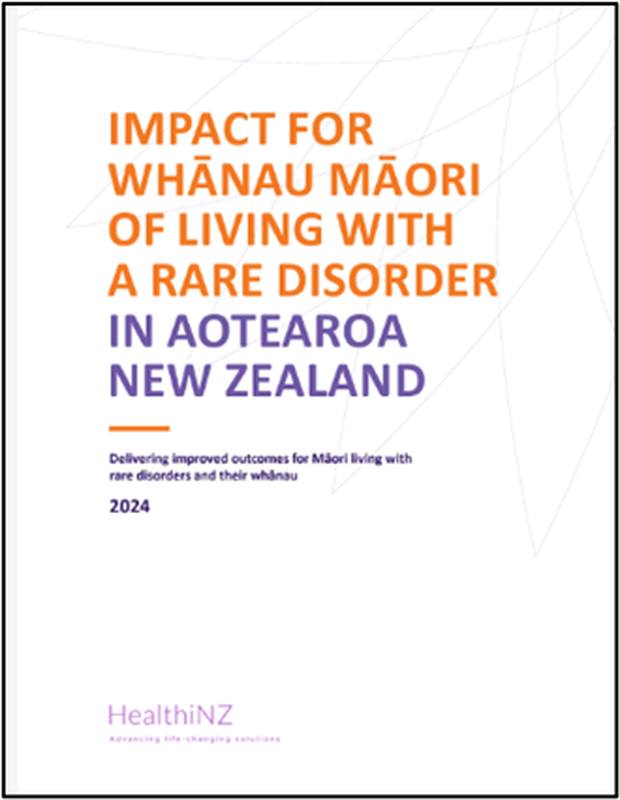
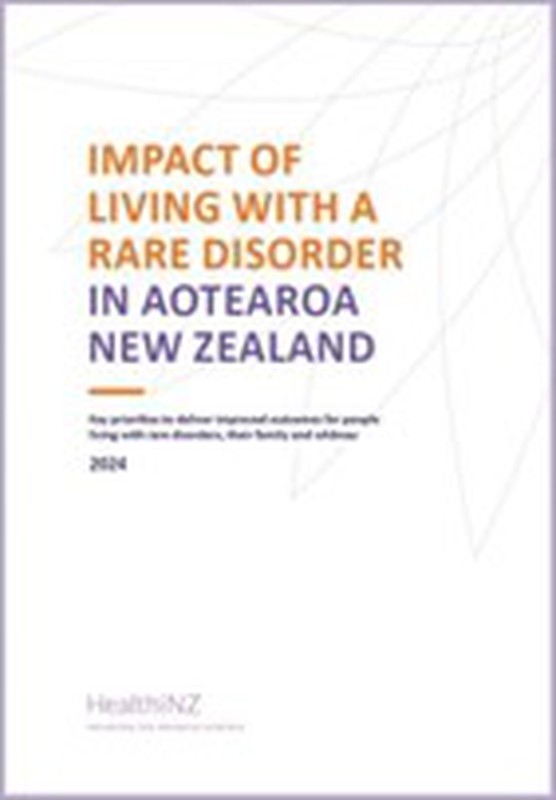
Responses from Māori are presented in a companion report. Download the 2024 Impact for Whānau Māori of Living With a Rare Disorder in Aotearoa New Zealand. www.raredisorders.org.nz/assets/Documents/5295_RDNZ_Whanau-Maori-White-Paper-Layout_WEB.pdf
RDNZ also hosted a members coffee morning which we enjoyed attending to represent IDFNZ. It was helpful to debrief from the day before and to meet the team in a less formal setting.
